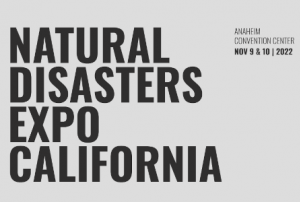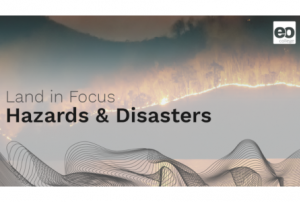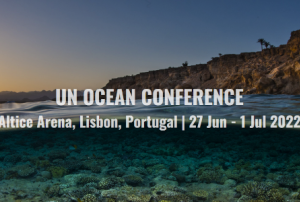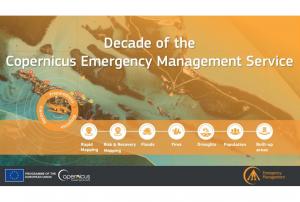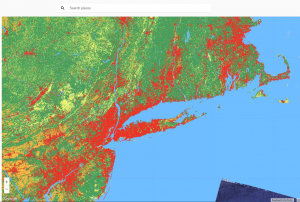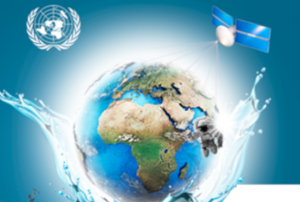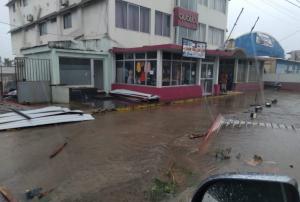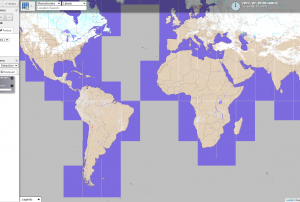Flood
Definition
Facts and figures
Further information
UN-SPIDER Regional Support Offices with hazard-specific expertise
Related content on the Knowledge Portal
Consists of:
- Heat & Fire Expo
- "The Heat & Fire USA is the leading wildfire prep, management, and recovery event, showcasing the latest tools, strategies, and insights among investment and global industry leaders."
- Earthquake Expo
- "The Earthquake Expo USA is the leading seismic prep, management, and recovery event, showcasing the latest tools, strategies, and insights among investment and global industry leaders."
- Flood Expo
- "The Flood Expo USA is the leading flood prep, management, and recovery event, showcasing the latest tools, strategies, and insights among investment and global industry leaders."
- …
- Heat & Fire Expo
Text adapted from https://eo-college.org
Welcome to the ‘Hazards and Disasters’ online courses. In the three MOOCs which are part of it, we will take a closer look at how remote sensing can answer essential questions related to the emergency response that is needed during hazardous events. Thus, disaster management heavily relies on remotely sensed data and their prompt processing in order to support decisions that can a) estimate the extent of a (natural) disaster and b) save lives by scientifically justifiable choices.
In the three lessons of this course, we will present different applications of remotely sensed data for disaster monitoring to you. At first, we will take a look at droughts, then dive into mapping flood extents using an interactive cloud-based approach before ending our course with the monitoring of fire hazards.
In the lessons listed below, you will be doing the…
read moreSave our Ocean, Protect our Future
The Ocean Conference, co-hosted by the Governments of Kenya and Portugal, comes at a critical time as the world is seeking to address many of the deep-rooted problems of our societies laid bare by the COVID-19 pandemic and which will require major structural transformations and common shared solutions that are anchored in the SDGs. To mobilize action, the Conference will seek to propel much needed science-based innovative solutions aimed at starting a new chapter of global ocean action.
Implementing science to save lives: A Decade of the Copernicus Emergency Management Service
The Copernicus Emergency Management Service (CEMS) celebrates a decade of operation as a world leader in emergency mapping, early warning tools and open-access disaster information.
For the past ten years, CEMS has provided a global service as a fully operation emergency mapping service at no cost to users and with open access data.
Some highlights on the contribution of CEMS in global disaster risk management activities:
- 576 Rapid Mapping Activations with 5,500+ maps delivered
- Designed and implemented the world’s first Global Flood Monitoring tool
- Ten years of wildfire forecasts up to ten days into the future
- Average of 200+ flood and 500+ flash flood notifications to Member States and authorised users each year
- Offers a current and historical database of 7,000+ drought episodes since 1950
…
read more22/06/2022- Publishing institution:
- Publishing institution:
On 10 May 2022, the United Nations Office for Outer Space Affairs (UNOOSA), the University of Energy and Natural Resources of Ghana, and the Prince Sultan Bin Abdulaziz International Prize for Water (PSIPW) inaugurated the 5th International Conference on the Use of Space Technology for Water Resources Management. The conference, held in Accra from 10 to 13 May 2022, aims to promote the use of space technology in water management in developing countries.
During the opening segment of the conference, high ranking authorities noted that there have been many success stories related to the Sustainable Development Goals (SDGs), but unfortunately some of these were eroded by the COVID 19 pandemic. They remarked that Ghana is hosting this conference to see how best to foster new partnerships to address the SDGs, and to facilitate a constructive discussion on two key issues essential to sustainable development: Space technologies and sustainable use of water…
read more12/06/2022On 11.03.2022, Tropical Cyclone Gombe led to extensive flood events in northern and central Mozambique.
More information here: https://floodlist.com/africa/mozambique-cyclone-gombe-march-2022
Preliminary impacts reported by INGD indicate that many houses and power lines have been destroyed or damaged; twelve people have been reported killed, several have been injured, and overall more than thirty thousand people have been affected. There are also over one hundred schools damaged or destroyed, one bridge has collapsed, and several roads have been affected.
As a consequence, Copernicus EMS and the International Charter Space and Major Disasters, making use of the potential of space-based technologies for emergency mechanisms, were active. Below, you find a collection of links to the activations…
read more18/03/2022- Publishing institution:
- Publishing institution:

